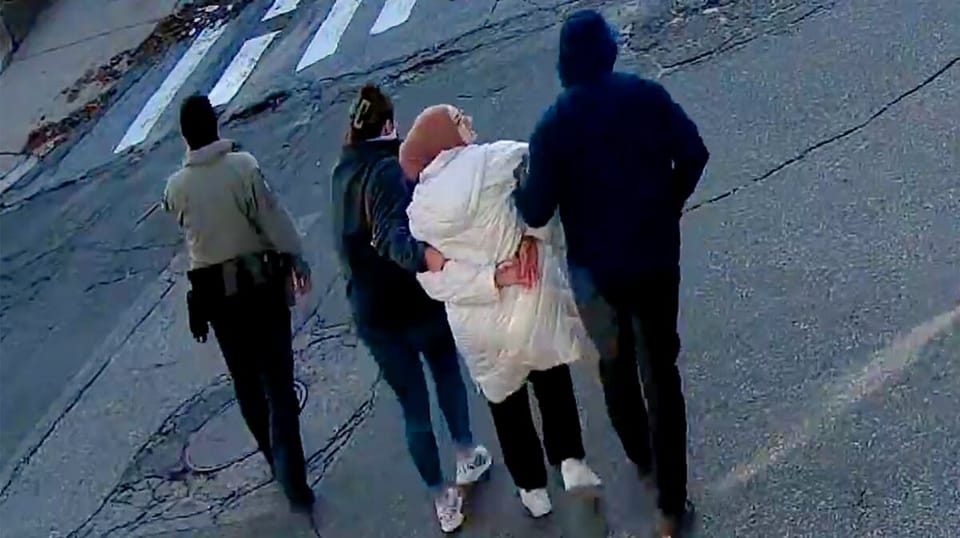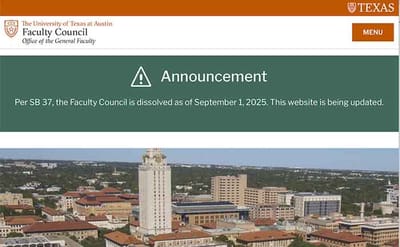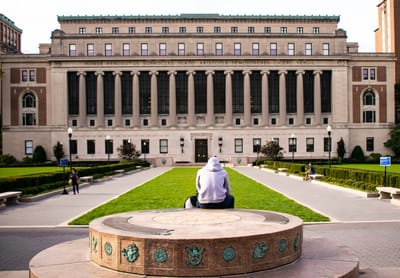Weekly War Bulletin: March 30

[NOTE: In the interests of transparency, when I add or change writing after publishing I will note it in the revised version. Below, for example, an additional paragraph ia called out which was added on 3/31]
Yesterday morning the news broke that hundreds of international students had received self-deport emails. This follows the flippant announcement by Secretary of State Marco Rubio that roughly 300 international students had had their student visas revoked for having participated in pro-Palestinian protests or shared opinions critical of Israel. Earlier in the month, Axios reported on a new “catch and revoke” plan at the State Department, using AI to track down targets. It seems the first targets of this program are now being contacted, threatened not only with deportation but with the possibility of being “sent to countries other than their countries of origin.”
So far all reporting seems to be based on the original Time of India report, which quotes the following message:
On behalf of the United States Department of State, the Bureau of Consular Affairs Visa Office hereby informs you that additional information became available after your visa was issued. As a result, your F-1 visa with expiration date XXXXX was revoked in accordance with Section 221(i) of the United States Immigration and Nationality Act, as amended.
The Bureau of Consular Affairs Visa Office has alerted the Department of Homeland Security’s Immigration and Customs Enforcement, which manages the Student Exchange Visitor Program and is responsible for removal proceedings. They may notify your designated school official about the revocation of your F-1 visa.
Remaining in the United States without a lawful immigration status can result in fines, detention, and/or deportation. It may also make you ineligible for a future U.S. visa. Please note that deportation can take place at a time that does not allow the person being deported to secure possessions or conclude affairs in the United States. Persons being deported may be sent to countries other than their countries of origin.
Given the gravity of this situation, individuals whose visa was revoked may wish to demonstrate their intent to depart the United States using the CBP Home App.”
As soon as you depart the United States, you must personally present your passport to the U.S. embassy or consulate which issued your visa so your visa can be physically cancelled. You must not attempt to use your visa as it has been revoked. If you intend to travel to the United States in the future, you must apply for another U.S. visa and a determination on your eligibility for a visa will be made at that time.
Section 221 (i) of the Immigration and Nationality Act reads as follows:
(i) After the issuance of a visa or other documentation to any alien, the consular officer or the Secretary of State may at any time, in his discretion, revoke such visa or other documentation. Notice of such revocation shall be communicated to the Attorney General, and such revocation shall invalidate the visa or other documentation from the date of issuance: Provided, That carriers or transportation companies, and masters, commanding officers, agents, owners, charterers, or consignees, shall not be penalized under section 273(b) for action taken in reliance on such visas or other documentation, unless they received due notice of such revocation prior to the alien’s embarkation. There shall be no means of judicial review (including review pursuant to section 2241 of title 28, United States Code, or any other habeas corpus provision, and sections 1361 and 1651 of such title) of a revocation under this subsection, except in the context of a removal proceeding if such revocation provides the sole ground for removal under section 237(a)(1)(B).
I am of course no lawyer, and even if I were any opinion I as to the law would be irrelevant since the law is being used with little regard for its intent or precedent. But in a normal moment in time the final sentence above could to be a cause for, at the very least, judicial pause: “There shall be no means of judicial review … , except in the context of a removal proceeding if such revocation provides the sole ground for removal under section 237(a)(1)(B).” In other words, if the individual is being deported solely because they have had their visa revoked, it would seem that judicial review is still a right.
Of course, it is the Justice Department that gets to engage in that review described here, and the Justice Department has never been less independent of the White House in living memory. And the law does give remarkable latitude to government officials to arbitrarily strip anyone of a visa. The visa is one's ticket to enter, but once it is removed one becomes technically deportable with little or no justification, as we are seeing. This has not been weaponized in this way by any previous administration, and it effectively strips international students of first amendment rights the courts have affirmed since 1945. When protected speech is sufficient to justify removing a student's visa, their first amendment rights are rendered entirely theoretical, even as universities are forbidden from restricting international students' first amendment rights differently than they do those of domestic students.
All the students arrested or threatened with arrest so far have been convicted of no crime, and are being targeted solely because of their involvement with protests, social media posts, or other protected speech (including in one case, an editorial to the student paper). The justification for the revocation of their visas is always vague “threats” to national security or activities providing “support” to Hamas. The crime, of course, is that they are in the country despite their visa being revoked for a “crime” that is in fact no crime and whose conviction requires no evidence. The whole of this targeted deportation project, that is, is straight out of the playbook of all autocracies and tinpot dictatorships.
As all of this accelerates faster than could have been imagined even a week ago, this week’s war bulletin is devoted to those who have found themselves caught in this dragnet whose only purpose is to prove the power of the administration to do as it will—and to test the capacity of the judiciary to try and stop them. I want to remember their names.
Alireza Doroudi
On Thursday March 27th, a University of Alabama international graduate student studying mechanical engineering was arrested by ICE. No explanation for his arrest has been offered aside from unsubstantiated claims that “this individual posed significant national security concerns.”
His lawyer strongly pushed back: "He is legally present in the U.S., pursuing his American dream by working towards his doctorate in mechanical engineering. He is also in the early stages of applying for an EB-1/Adjustment of Status as a researcher with extraordinary ability.“
Like all of the other targets of these arrests, there is absolutely no evidence that Doroudi has ever been charged with a crime.
University of Minnesota
On Thursday March 27th a University of Minnesota graduate student was arrested by ICE at an off campus residence. We don’t yet know the student’s name or where they are being detained. The university released an announcement which made clear that they were caught completely off-guard by the action.
Rumeysa Ozturk
On March 25, Rumeysa Ozturk, a Tuft University graduate student, was arrested by undercover ICE agents in Somerville and transported quickly to an ICE detention facility in Louisiana. She was moved despite a judge’s order that she remains in Massachusetts. Evidence suggests that the administration is striving to get the students they are targeting for deportation to favorable judicial districts.
Video showing Ozturk being waylaid and surrounded as she was on her way to meet friends to break her Ramadan fast has been widely circulated. The idea that students who have committed no crime are being rounded up off the streets in this manner is deeply chilling, and the video has galvanized support for Ozturk’s return both in Boston and nationally.
To repeat, not one of the students targeted for deportation have been charged with a crime. Homeland Security insists Ozturk had been “engaged in activities in support of Hamas,” providing no details as to the supposed nature of this support. Ozturk contributed to an editorial in the Tufts student paper calling on the university to divest from Israel. The editorial is a clear expression of free speech. There is no conceivable way to perceive this as an example of material support of Hamas. It is an example of passionate students expressing their convictions, as the First Amendment entitles them to do.
On Friday March 28, a federal judge in Massachusetts has blocked the government from deporting her, pending review of the arrest.
Yunseo Chung
Columbia University undergraduate Yunseo Chung first moved to the U.S. with her family when she was seven. She would go on to become valedictorian of her high school class, and she enrolled at Columbia as an English and Women’s Studies major in 2022.
Homeland Security told the Columbia student paper that Chung had been “engaged in concerning conduct, including when she was arrested by NYPD during a pro-Hamas protest at Barnard College. She is being sought for removal proceedings under the immigration laws.”
As with all of the students targeted under this campaign, Chung has not been convicted of a crime. The arrest Homeland Security mentions refers to her participation in a sit-in on March 5 at Barnard, protesting the expulsion of students who had been protest leaders last spring as part of Columbia University’s ongoing campaign of surrender to the Trump administration. Along with other students, Chung was arrested when she was unable to make it out of the building quickly enough following evacuation orders in response to a fraudulent bomb threat. She was given a desk appearance ticket to return for arraignment and released. Two days later, Columbia suspended her. Two days after that, on March 9, ICE agents raided her parents’ home in an unsuccessful attempt to arrest her.
On March 25, while still in hiding from ICE, Chung’s lawyers filed suit against the administration. That same day, a federal judge blocked attempts to arrest her. U.S. District Judge Naomi Reice Buchwald said government lawyers have not yet laid out their claims sufficient to justify detaining Chung while her case plays out. As of this writing, Chung remains free.
Badar Khan Suri
Badar Khan Suri is discussed in last week’s bulletin. Suri is an Indian postdoc who was arrested on March 17 at Georgetown University, falsely accused of spreading pro-Hamas propaganda. As of this writing he remains in a Louisiana ICE detention center.
Momodou Taal
Momodou Taal is a Cornell doctoral student in Africana studies with dual UK and Gambian citizenship. Taal filed a preemptive lawsuit against the government on March 15, the day after his student visa was revoked. On the 26th, a district judge declined to intercede. Taal and his lawyers filed an amended suit the following day.
Taal initially attracted social media attention after posting on X on October 7, 2023: “Colonised peoples have the right to resist by any means necessary” and “Glory to the resistance!” He was heavily involved in pro-Palestinian protests on the Cornell campus and was suspended from campus for shutting down a career fair during a protest before being reinstated.
In Taal’s case, Homeland Security is more explicit than in others as to their reason for seeking his deportation “Mr. Taal’s involvement in certain protests at Cornell University align with the Executive Order’s focus on deporting individuals who perpetrate ‘unlawful anti-Semitic harassment.’”
For now Taal remains free while his legal efforts work their way through the courts.
Ranjani Srinivasan
Srinivasan was an Indian student attending Columbia’s Graduate School of Architecture, Planning and Preservation. Her visa had been revoked on March 5, supposedly for being “involved in activities supporting Hamas, a terrorist organization”—although of course no supporting evidence was provided. On March 7 ICE showed up at her apartment without a warrant and her roommate refused to admit them. After fellow-Columbia student Mahmoud Khalil was arrested and taken to a Louisiana ICE detention center, Srinivasan made the decision to leave.
On March 14, Homeland Security released a statement crowing about what they termed Srinivasan’s self-deportation to Canada. Srinivasan denies that she used the self-deportation process.
Mahmoud Khalil
As discussed in previous installments of this bulletin, Khalil was the beginning of this assault on the international student community—a community which has been an essential part of higher education for generations. Khalil is an Algerian citizen who was born in a Palestinian refugee camp in Syria, and, unlike the others targeted, he holds a green card, making him a legal permanent resident. He is married to an American citizen. He remains in the ICE detention facility in Louisiana.
It must be repeated: not one of these students is guilty of any crime. Their visas have been terminated, and they have had warrants issues for their arrest and deportation because the government does not like the protests in which they participated, the social media posts they made, or, in the case of Suri, the person he is married to.
I have no doubt that some of these students chanted things that I would have found troubling. I certainly find Taal’s October 7 social media post celebrating the attack on Israeli civilians disturbing. I am Jewish myself, and while I do not support the government of Israel’s war on Gaza in any way, I am also very aware that antisemitism has been much more deeply woven into many of the protests than those involved are prepared to acknowledge.
But Jewish people have lived with antisemitism for many centuries. We have survived numerous attempts to wipe us off the planet, including pogroms and the Holocaust. I find it hard to imagine a world where I do not have to look at photos of celebrities wearing swastikas or have masked neo-nazis marching through town hoping to spread fear and hate. The actions of this administration, supposedly guided by a concern for “antisemitism” but quite explicitly motivated solely by the testing the limits of their power to make unilateral decisions regarding the lives of others, will fuel antisemitism further. Indeed, that is what they are counting on.
Freedom from hateful words and symbols—even from physical violence and vandalism—is not worth the price of silencing free speech or kidnapping and deporting those who choose to exercise it. I have more to say on this, but that is for tomorrow. Today is about recording and repeating the names of those who have been targeted to beta test the unconstitutional authoritarianism to which this administration is committed. As I have said before, no one should believe they will stop with dissenters who happen to be international students.
Mahmoud Khalil, Ranjani Srinivasan, Momodou Taal, Badar Khan Suri, Yunseo Chung, Rumeysa Ozturk, and those whose names we don’t yet know. These are our students. They came here believing in our system of education and our claims to freedom of speech. They were betrayed.
Subscribe (always free)
Subscribe (free!) to receive the latest updates






Member discussion